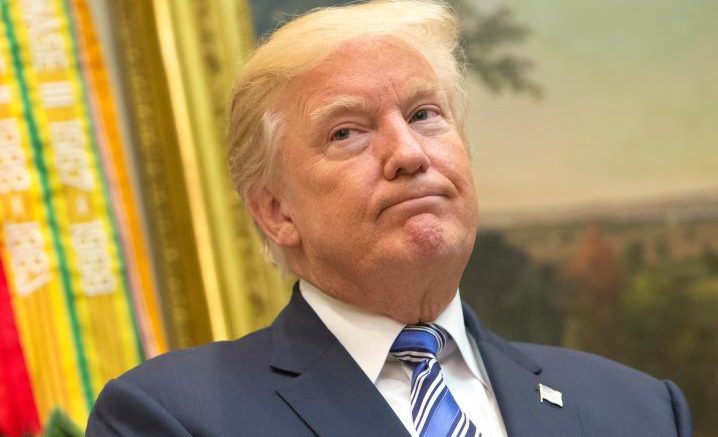In their lawsuit, the National Center for Lesbian Rights (NCLR) and GLBTQ Legal Advocates & Defenders (GLAD) allege the White House has turned Trump’s tweets into “official guidance … to be communicated to the Department of Defense.” They argue that this guidance infringes upon the equal protection and due process rights of trans troops. According to their complaint, the “categorical exclusion of transgender people from military service … based on their sex and transgender status” lacks any rational basis and is therefore too “arbitrary” to comport with the Fifth Amendment’s equal protection component. Moreover, the policy would deprive transgender service members of their property and liberty interests based exclusively on their gender identity, a “capricious” deprivation of due process.
The complaint also asserts that the government cannot lawfully rescind rights already granted to trans troops. In June 2016, the Pentagon ended its ban on open trans service, a policy that many troops relied upon in coming out as transgender. The suit alleges that the military may not now reverse this policy and punish those troops who “informed their commanding officers that they are transgender … in reliance upon that promise from” the Pentagon. It seeks an injunction “prohibiting the categorical exclusion of transgender people from military service.”
“Trump’s attempts to reinstate a ban have blindsided thousands of transgender service members who are now scrambling to determine what this means for their families and their futures,” NCLR legal director Shannon Minter told me. “We are appalled by the president’s callous mistreatment of transgender soldiers, and we want to send a message loud and clear that we will aggressively challenge any attempt to harm them.”
The suit’s constitutional theories are especially compelling in light of the unprecedented nature of Trump’s policy: Never before has the Pentagon invited a new group of individuals to serve, then broken its promise and purged them from the ranks based solely on political judgment. The due process concerns raised by such a move are heightened by troops’ reliance interest. It is one thing to prohibit transgender people from enrolling in the military in the first place. To invite enrolled trans troops to come out, then expel them for making that decision on the basis of mere animus would seem to push the limits of due process. As a general rule, the government may not extend a guarantee of liberty to individuals and then punish them for relying upon that guarantee. On the merits, the plaintiffs have a strong case.
Will the courts reach the merits of this case? That’s a tricky question. Federal courts may not render judgment in a case unless it is “ripe”—that is, rooted in a present controversy rather than based on speculative future events or policies. The government will likely respond to this suit by arguing that the trans ban has not been formalized, let alone implemented. But that argument is a bit of a double-edged sword: As civil rights attorney Sasha Samberg-Champion points out, if the government objects on ripeness grounds, it would effectively hand a victory to the plaintiffs by admitting that it isn’t really doing anything. Put differently, if the lawsuit fails because the trans ban isn’t ripe for adjudication, it also succeeds in proving that the trans ban does not yet exist, and may not for the foreseeable future.
Source: www.slate.com





Be the first to comment on "[Opinion] Why the First Lawsuit Against Trump’s Trans Troops Ban Is So Ingenious"